In the days that have passed since the terrorist attack in Boston, the many details of this crime and the even greater volume of speculations have still provided no satisfactory explanation of reasons and motives. What had seemed to be a picture of an émigré family working hard for their pieces of the American dream turned out to be a story of failed socialization and a frustrated search for identity that turned into blind hatred. The US media has focused on the blunders of the security services in preventing this premeditated crime, on the shortcomings of the American immigration policy (currently distorted by the deadlocked battles in the US Congress), or on the continuing mutations of Islamic extremism. There is, however, a twist to this tragic story that sets it apart from other cases of quiet Americans turning into Muslim fanatics. This twist originates in the humanitarian catastrophe in the North Caucasus and spins through the protracted agony of the Chechen diaspora.
One family in the trail of tears
The uprooting of the Tsarnaev family was a micro-episode in Stalin’s punishment of the Chechens and other peoples that were forcefully displaced from the Caucasus and dumped into Siberia and Central Asia in February 1944. Most of the survivors were allowed to return to their devastated villages in 1957, but the Tsarnaevs, who had managed to find steady jobs in Kyrgyzstan, opted to stay. It was the fast decomposition of social fabric in the newly-independent Kyrgyzstan after the collapse of the USSR in 1991 that forced them to flee, but the North Caucasus, which had been badly affected by the war that engulfed Chechnya in 1994, proved to be an equally unwelcoming home. An attempt to return to Central Asia was another failure, and they joined the sad journey of many Chechen families moving from temporary shelters in Turkey to refugee centers in Poland to asylum-seekers institutions in Austria or Norway. The difference was that this family ended up in the US, where the Chechen community is so small that, much to the dismay of the Czech Republic, first reports on the manhunt misrepresented the Tsarnaev brothers as Czechs.
As he passed his teenage years in Boston suburbia, Tamerlan Tsarnaev never developed a feeling that he could fit in despite his moderate success as amateur boxer. It is unclear how he convinced his American girlfriend to convert to Islam and to marry him, but it is a fact that he was once arrested for beating her. His father Anzor dismissed that episode as nonsense: “In America, you can’t touch a woman,” implying that in the Caucasus, a self-respecting man wouldn’t think twice about it. Unable to find a job at 26, Tamerlan was probably deeply frustrated with the role of house-father taking care of his baby daughter, while his wife supported the household with her salary. His sister married an American and cut ties with the family, but Tamerlan had a strong influence on his younger brother Dzhokhar. Still a teenager, the youngest Tsarnaev was struggling with college courses and his habit of smoking marihuana didn’t help.
The call of the war
Confused about their identity, both brothers kindled a passion for their imaginary homeland Chechnya, but it was the older one who found a way to blend this yearning with a progressively consuming devotion to Islam. The local mosque was unable to satisfy this craving and he turned to surfing through the archipelago of proselytizing and extremist websites. His parents could have checked that journey, but a few years ago they returned to Russia and settled in Makhachkala, Dagestan. In early 2012, Tamerlan came to visit them and stayed for as long as six months. It was this exposure to war as a way of life that most probably sealed his violent radicalization.
Dagestan is indeed the theater of a protracted low-intensity civil war of unique complexity, in which feuds between criminal clans are barely distinguishable from guerilla attacks of rebels of various persuasions and underground Islamic networks challenge the alliance of authorities and clergy. According to NGO data for 2012, 405 people were killed and 290 wounded in the republic. Russian society pays scant attention to the shootouts and explosions, and in the West, this smoldering war in a far corner of Europe is completely forgotten. Russian troops stick to their routine of counter-terrorist operations, but the rebels now see themselves not as ‘al-Qaeda franchises’ but as a part of the powerful revival of political Islam. Tamerlan had plentiful opportunities to internalize this powerful message.
Kadyrov can and will deny everything
Russian media is full of speculations about the ‘setup’ of the Tsarnaev brothers and ‘plots’ of US special services, but these conspiracy theories avoid one person who has benefitted from the Boston bombing – Chechnya’s warlord-president Ramzan Kadyrov. He described Tamerlan and Dzhokhar as ‘products of American culture’ but counts on this terrible incident to severely discredit the whole Chechen diaspora, which he seeks to terrorize with every means available. He was irked by his de-facto inclusion in the ‘Magnitsky list’ and knows that the Obama administration has suffered a painful ‘lesson’. More importantly, he expects that Moscow has registered the message that cutting federal subsidies to Chechnya would be unhelpful. US investigators will struggle to establish how the idea of taking the ‘jihad’ from the war-torn Mahachkala to the finish line of the Boston marathon was planted in Tamerlan’s head, but Kadyrov, the master of terror in Grozny, had a good week and enjoys being untouchable in the matter.
The Brookings Institution is committed to quality, independence, and impact.
We are supported by a diverse array of funders. In line with our values and policies, each Brookings publication represents the sole views of its author(s).
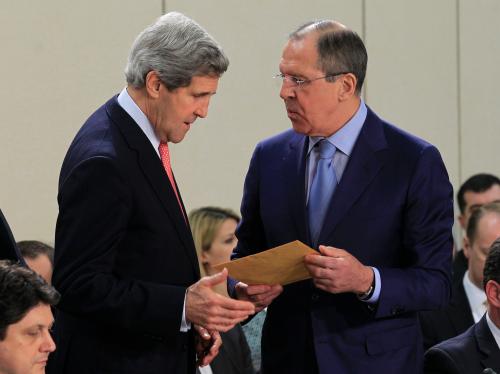
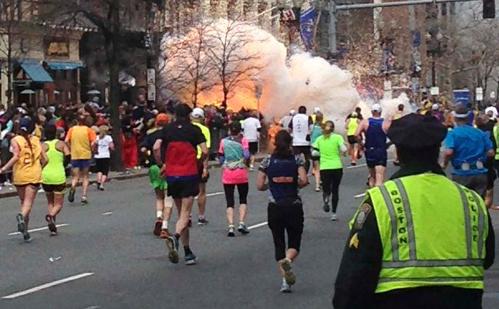
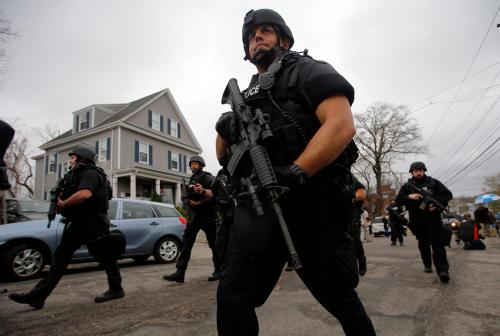
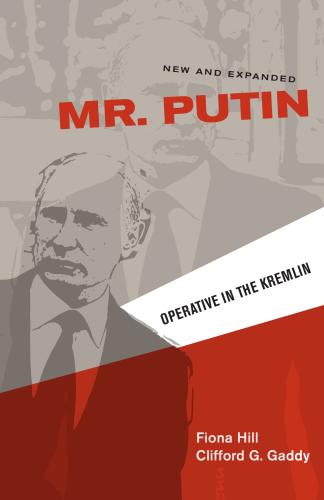
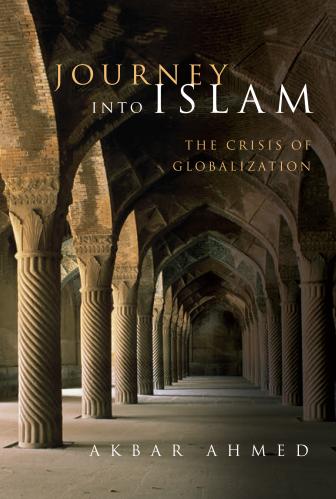
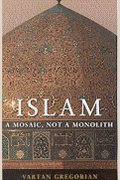



Commentary
Op-edThe Chechen War Comes to Boston
April 25, 2013